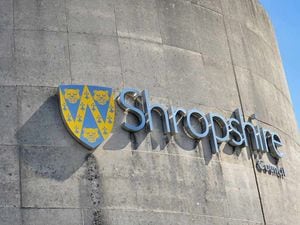Councillors avoid reprimand after social media posts
Councillors have avoided reprimand after social media posts, attracting complaints from the public, were ruled to have been made in a “personal capacity” - but a senior standards officer has suggested this defence should be made harder to mount.

The Local Government Association (LGA) is currently consulting on a draft model code of conduct, to be made available for local authorities to use. Telford and Wrekin Council’s Standards Committee will meet next week to decide its response.
Commenting on one of the LGA’s questions, Monitoring Officer Anthea Lowe writes that it would “provide greater clarity” to amend the document to assume councillors are widely known among their constituents, and are speaking and writing in an official capacity unless they explicitly dissociate themselves.
In her observations, which the seven-member committee will discuss on Thursday, July 30, she also suggests the LGA’s current definition of “bullying” does not include cases of low-level, less offensive but repeated actions.
Ms Lowe, whose role includes overseeing conduct matters, writes that the consultation period on the LGA’s new draft code runs until mid-August. She asks the Standards Committee to respond, and has made observations and suggestions on some points for them to consider.
Among the LGA’s questions, it says: “Under the 2012 Localism Act, the code of conduct applies to councillors only when they are acting in their capacity as a member.
“The LGA believes, because councillors are elected by the public and widely recognised, it makes sense for them to continue to model these behaviours when they are making public comment, are identifying as a councillor and when it would be reasonable for the public to identify them as acting or speaking as a councillor.”
Ms Lowe comments that: “Many standards complaints now arise as a result of social media activity on the part of councillors even where such activity may, strictly, be carried out in a personal capacity.
Capacity
“It is apparent many members of the public are aware a person is an elected member even if their social media profile does not indicate this.”
She adds that some complaints are dismissed by the standards process because “social media activity was undertaken by the individual rather than the elected member” and widening the situations where it applies “seems sensible”.
Ms Lowe adds: “It would provide greater certainty if this wording was altered to indicate that the code ‘caught’ members where a member of the public felt that they were acting in their council capacity and that there was a rebuttable presumption that the member was, unless they stated otherwise with wording such as ‘personal views only and not representative of X Council’s position’.”
The code defines bullying as “offensive, intimidating, malicious or insulting behaviour, an abuse or misuse of power through means that undermine, humiliate, denigrate or injure the recipient”, and the LGA asks local authorities whether they agree with it.
Ms Lowe writes: “We consider that behaviour that, as a one-off, might be considered acceptable, can be considered bullying if repeated and/or persistent.
“For example, placing unreasonable demands on officers or expecting work to be undertaken outside normal office hours.”





